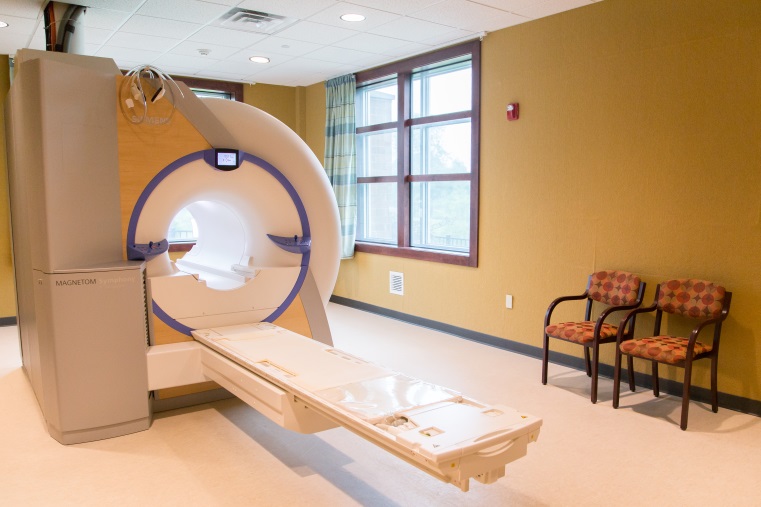MRI Services
The Spine and Brain Imaging Center (SBIC) combines personalized care with leading edge, state-of-the-art technology to provide the highest quality magnetic resonance imaging (MRI) services for patients in Southeastern Wisconsin.
SBIC specializes in diagnostic imaging of the brain and spine – areas where high quality imaging is an absolute necessity for correct diagnoses. MRIs can help diagnose a large range of conditions including aneurysms, spinal cord injuries, tumors, and brain injuries caused from trauma.
The quality of a medical diagnostic image can often directly impact the accuracy of a diagnosis. In fact, an accurate diagnosis not only prevents unnecessary procedures, it can also save you time and money.

State of the Art Technology
Our Siemens Symphony Tim MRI Scanner is top of the line, and with a recent software update we are able to produce the best quality images possible. This device is more advanced than the MRI machines at most local hospitals.
Not only does this scanner utilize a top-level technology 1.5 Tesla high field magnet, the scanner bed that patients lay on is shorter than most scanners. This increases patient comfort, especially for those with claustrophobia.
Our facility performs MRIs with and without contrast, as well as MRAs which can involve the use of a contrast dye depending on the area being examined. MRAs are typically utilized to examine blood vessels of the brain, neck and aortic arch as well as aneurysms, blockages and stenosis, tumors, among other uses.
Our MRAs and MRIs can identify herniated (slipped) discs, spinal stenosis, carotid artery stenosis, blood vessel blockages, aneurysms, pre-stroke conditions, post-stroke conditions, arteriovenous malformations, brain tumors and many other medical conditions of the spine and brain. The spinal scans we perform include the cervical spine (neck), thoracic (middle) spine, and lumbar (lower) spine.
In addition, our facility has a dedicated extremity coil for MRIs of the shoulder, knee and hip.
How long do MRI scans take?
An MRI will take 1-2 hours depending upon the body part imaged and the need for sedation.
In some cases patients are best served with intravenous sedation during their MRI scan. Our nurses and physician’s assistants will monitor you during the scan so you can be sedated and have your MRI in comfort.
Please be aware that if you plan to have intravenous sedation, you should refrain from eating or drinking prior to the scan. Our staff will review these and other instructions in complete detail prior to your scan.
Can I have sedation if needed?
Yes, both oral and intravenous sedation are possible. Dr. Ahuja will assist you in determining the most appropriate form of sedation if you need it.
Our nurses and physician’s assistants will monitor you during the scan so you can be sedated and have your MRI in comfort.
Please be aware that if you plan to have intravenous sedation, you should refrain from eating or drinking prior to the scan. Our staff will review these and other instructions in complete detail prior to your scan.
Is there radiation exposure from MRI scans?
MRIs (magnetic resonance imaging) are based on the use of magnetic waves and unlike x-rays, MRIs do not use ionizing radiation. No type of radiation that is linked to cancer is used during MRI scans, so there is no reason to be concerned of radiation exposure during your MRI image tests. The MRIs at the Spine and Brain Imaging Center uses a powerful magnetic field combined with radio waves to create images of your internal body structures, including organs, tissues, and bones. This noninvasive imaging allows Dr. Ahuja to help accurately diagnose the cause of your discomfort.
Can I have an MRI if I am pregnant?
Since any scanning of a pregnant female might affect the developing fetus, we attempt to avoid scanning during the first three months of pregnancy unless the benefit to you clearly outweighs the risk to the baby.
If a scan of any type is needed, we will work with your obstetrician to determine the most appropriate time for the scan to occur.
